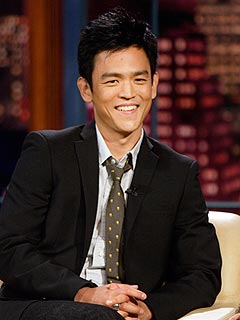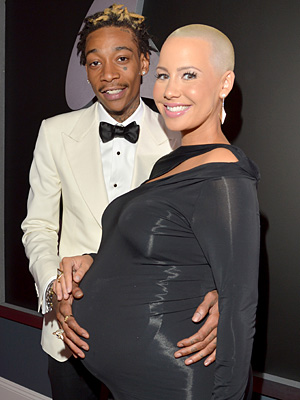But suddenly, he found himself in even more rarefied company, with his name mentioned alongside those of more long-serving cardinals as a potential next pope, even though, by all accounts, his chances are slim.
The news on Monday of Pope Benedict XVI’s resignation came as a surprise to Cardinal Dolan, as it did to most of the world. But within hours, his life was already changed. As he continued to go about his regular business as archbishop, he found himself even more in the spotlight to which he has become accustomed, facing a glare that will quite likely continue at least through the conclave in Rome next month.
On Monday, when he dedicated a chapel in Rockland County and attended a prayer meeting in the Bronx, he also ricocheted between media appearances, beginning at 7 a.m. on “Today,” the NBC show, then holding a news conference, writing an op-ed, and granting interviews to ABC and CBS. He was still talking to reporters as night fell, holding an impromptu news conference outside the New York Athletic Club on Central Park South before going inside for a fund-raiser. Both Mayor Michael R. Bloomberg and Gov. Andrew M. Cuomo fielded questions from reporters about the possibility that Cardinal Dolan could become pope; on late-night television, Stephen Colbert offered his endorsement (what he called a “Colbert bump”) for Cardinal Dolan for pope.
Through it all, the cardinal approached the speculation about “Pope Dolan” with his typical self-deprecating humor. Asked what he would do if he found himself among the finalists, he said, “I’ll tell them they have the wrong guy.”
“Don’t bet your lunch money on that one,” he added of his steep odds. “Bet on the Mets.”
On Tuesday, Cardinal Dolan’s schedule returned to a relative normal, as he headed to Camden, N.J., to attend the installation of his former deputy, Dennis J. Sullivan, as bishop. On Wednesday, he plans to visit the bread line at the Church of St. Francis of Assisi in Manhattan in the morning, bestow ashes on the faithful for Ash Wednesday at St. Patrick’s Cathedral at noon, and then attend a wake on Staten Island.
“Honestly, we could do nothing but media — all day, every day — at this point,” said his spokesman, Joseph Zwilling. “He understands the value of it, he likes to do it. But he knows that as archbishop of New York, he’s got a lot of other things he has to attend to.”
The likelihood of Cardinal Dolan becoming the next pope is low, many observers say. “I would put him in the — what’s less than a dark horse?” category, said Christopher M. Bellitto, a papal historian at Kean University in New Jersey.
“He is arguably going to be, if he is not already, the voice and face of the American church, though whether he can translate that to higher office is another matter,” Professor Bellitto said.
The Rev. Thomas J. Reese, a senior fellow at the Woodstock Theological Center at Georgetown University, put Cardinal Dolan’s odds at “100 to 1.” But, he added, “Anything can happen.”
Cardinal Dolan is considered an unlikely pope for several reasons. Most obviously, he is a citizen of the United States, and the College of Cardinals has been reluctant to choose a pope from a superpower. This year, some Vatican watchers believe the cardinals might choose someone from North America as a compromise between taking the historic step to electing a pope from the developing world and the more conventional choice of someone from Europe. But even if that is the case, Cardinal Marc Ouellet, a Canadian who heads the influential Congregation for Bishops in Rome, seems “a more logical choice,” Professor Bellitto said.
Also, although Cardinal Dolan once served as the rector of the Pontifical North American College in Rome, a seminary for priests, he has never headed a Vatican department, which has often been a credential of a future pope. And, while Cardinal Dolan speaks Italian well enough to converse and deliver speeches, his Spanish is much more basic; many candidates for pope speak multiple languages.
But Cardinal Dolan has strengths as well. He “left an enormously positive impression when he was in Rome last February for the consistory, when he became a cardinal,” said John L. Allen Jr., the senior correspondent for The National Catholic Reporter. For the first time in memory, Italian newspapers were raising the possibility of an American pope, charmed by the “backslapping, baby-kissing, beer-swilling freak-of-nature that is Cardinal Dolan,” Mr. Allen said.
“I think he is a long shot, probably a remote possibility,” Mr. Allen added, “but I do think he will be in the conversation. And that, in and of itself, is something of a novelty for an American cardinal.”
Cardinal Dolan said that, when he first heard about Pope Benedict’s resignation Monday morning, he was in the middle of reading one of the pope’s books on the life of Christ. “That’s how much of my day he is,” he recalled that evening. “So I haven’t really thought to the next one, but I will sure miss him.”
He said he expected to be headed to Rome for the conclave as early as the beginning of March, but like everyone else, was still waiting to hear the exact date. “ ’Cause first of all, I’m a rookie,” Cardinal Dolan said, and also because the church itself is still working out how to handle the rare circumstance of a pope stepping down. “So what will happen now?” he wondered aloud. “I don’t know.”













